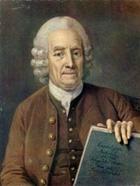
Emanuel Swedenborg was born in Stockholm in 1688 His life was spent in the traditions of a tottering civilization and the sudden start of a new era that his mind anticipated. His father was the Lutheran Bishop Jesper Svedberg. "From four until ten years later, 'he told a friend Swedenborg devoted myself constantly thinking of God in salvation in the spiritual adventures of men. Several times I revealed things that amazed my parents and made them think that angels speak for me. "
He attended the University of Uppsala, where he studied mathematics and mechanics and showed signs of having true poetic talent. There he received his doctorate with honors in Philosophy, at twenty years of age. In addition to Greek and Latin, understood French, English, Dutch, German and Italian languages he learned during his many travels well. He designed mechanical vehicles, flying machines and a submarine vessel, anticipating the invention of the automobile, the airplane and the submarine. He also invented weapons and machines of all kinds. He outlined the atomic theory and the nebular hypothesis, with many years prior to Laplace. Their contributions were fundamental to biology. He was passionately devoted to music. He was restless encyclopedic model. From 1716 he was a counselor of King Karl XII of Sweden.
His first philosophical work was published with the title Chemistry in 1720, but the most representative is collected in three volumes, published in 1734: Philosophical and Mineralogical Works. Then write Infinite.
Overwhelmed by the bleakness of the era in which he lived, he retired to the spiritual life in 1744 and spent 29 years of his life in near poverty. But before devoting himself entirely to religion writings left a total of sixty books and pamphlets, including highlights The First Origins of Natural Things, The Brain, The Economy of the Animal Kingdom and Rational Psychology. His predictions placed him at the scene of visionary. As announced six months earlier, Swedenborg died March 29, 1772.




